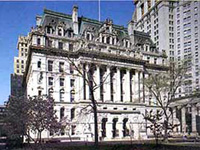 Article 81 of the New York Mental Hygiene Law provides the various statutory provisions for a New York Guardianship. Typically, the statute is utilized to obtain a guardianship over another person’s financial affairs and personal needs. The subject of these proceedings is referred to as an alleged incapacitated person (“AIP”).
Article 81 of the New York Mental Hygiene Law provides the various statutory provisions for a New York Guardianship. Typically, the statute is utilized to obtain a guardianship over another person’s financial affairs and personal needs. The subject of these proceedings is referred to as an alleged incapacitated person (“AIP”).
The procedures set forth in the statute require that a petition be filed. MHL Section 81.08 entitled “Petition” lists the information which must be contained in the Guardianship petition including a description of the AIPs functional ability. A key part of the Guardianship law is that a Court will need to be shown the ability of a person to handle various activities of daily living. These activities include the ability of a person to engage in financial matters and also to handle personal needs such as seeking medical attention, and maintaining a safe and secure living environment. Basic needs such as cleanliness and personal hygiene are important considerations. A Guardianship ensures that a person who is functionally incapacitated and at risk is protected from harm.
The Guardianship statute is also very particular that a Court only impose the least restrictive control by a Guardian. An AIP’s freedom and choice are a paramount consideration for protection by the Court.
 New York Probate Lawyer Blog
New York Probate Lawyer Blog











